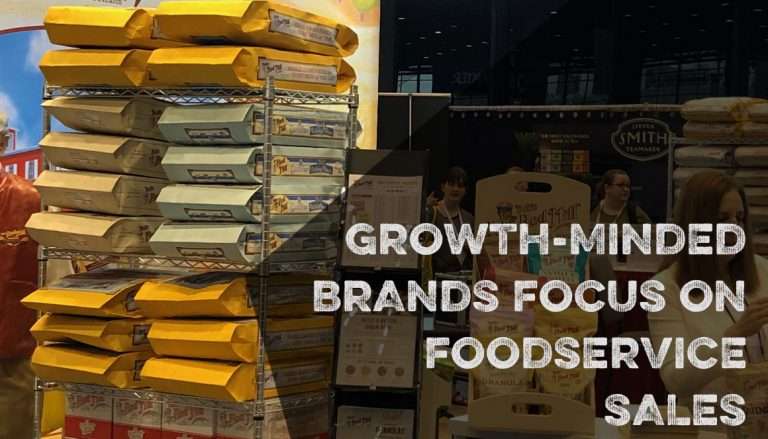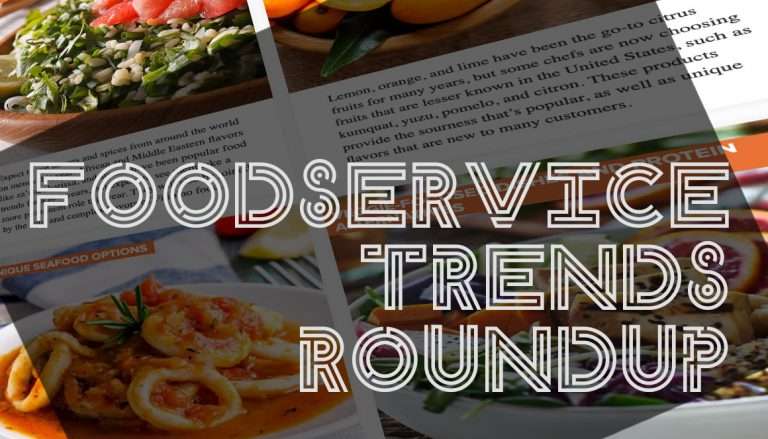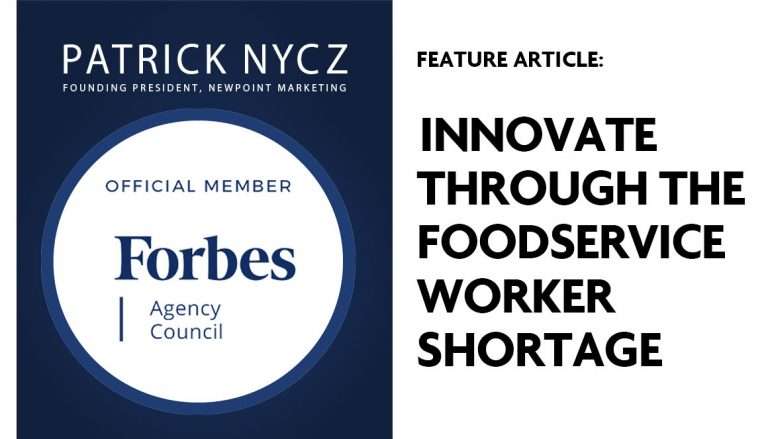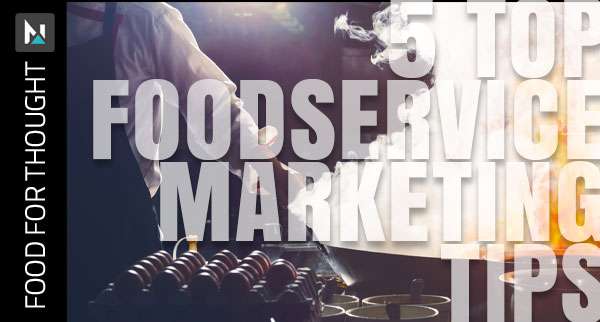May 8, 2024
The Essential B2B Foodservice Marketing Plan
B2B Foodservice Marketing Plan = Essential for Success
I work in a very competitive dynamic food industry. The companies I’m talking to find it challenging to reach their audience and get products on menus. Demand for innovative foodservice products is increasing. It’s becoming important for food companies to have a strong B2B foodservice marketing plan. A customized marketing strategy is essential to succeed in the competitive food service market.
Understanding the B2B Landscape
Unlike marketing to consumers, B2B foodservice marketing plan requires an understanding of the dynamics between suppliers, distributors, and foodservice operators.  Crafting a marketing plan that resonates with each stakeholder along the supply chain is essential for success.
Crafting a marketing plan that resonates with each stakeholder along the supply chain is essential for success.
Distributors play a pivotal role in connecting food companies with restaurants, hotels, and other foodservice channels. Foodservice marketing teams must help distributor’s reps with tools to help promote products to the right outlets.
Address Each Stakeholder Needs
In the complex foodservice industry, mastering the B2B landscape demands a nuanced understanding of the close relationships between suppliers, distributors, and foodservice operators. Unlike the straightforward approach of consumer marketing, B2B marketing in this domain requires a finely tuned strategy that addresses each stakeholder’s diverse needs and dynamics.
B2B Foodservice Marketing Plan: Include Distributors
Central to this ecosystem are the distributors. They bridge the gap between food companies and the many establishments they serve, including restaurants, hotels, and various foodservice channels. Recognizing the role of distributors is fundamental; they are the conduits through which products flow. Their influence on product visibility and availability cannot be overstated.
Empowering distributor representatives with the necessary tools and resources for foodservice marketing teams is paramount. Equipped with comprehensive knowledge and compelling marketing materials, these frontline ambassadors can effectively champion products, ensuring they reach the right outlets and resonate with the end consumers. By fostering strong partnerships and providing tailored support to distributors, foodservice marketing endeavors can unlock new avenues for growth and establish a formidable presence across the supply chain.
Targeted Messaging and Positioning:
In the foodservice channel, one size only fits some. A B2B foodservice marketing plan allows food companies to tailor their messaging and positioning to meet the specific needs and preferences of different segments within the food service market. Whether highlighting the nutritional benefits of their products to the K-12 market or emphasizing their reliable supply to high-volume restaurants, targeted messaging helps food brands stand out in a crowded marketplace.
Evolve the Plan
The foodservice industry is constantly evolving, with changing consumer preferences and emerging food trends shaping the market landscape. A solid B2B marketing plan enables food brands to stay agile and responsive to these shifts, allowing them to introduce new products, capitalize on emerging trends, and communicate them to a busy buyer market.
Targeted messaging and positioning are essential strategies for success in the foodservice industry. Let’s delve deeper into how these tactics can be effectively employed:
- Understanding Diverse Segments: The foodservice industry encompasses various segments, such as restaurants, schools, hospitals, and catering services, each with unique needs and preferences. A B2B foodservice marketing plan allows food companies to conduct thorough research and understand the nuances of each segment. For example, schools might prioritize nutrition and allergen information, while restaurants may be more concerned with flavor profiles and cost-effectiveness.
- Tailoring Messaging: Once different segments are identified, tailored messaging can be crafted to resonate with each audience. This involves highlighting specific product attributes or benefits most relevant to the target segment, such as promoting the convenience and versatility of pre-prepared ingredients to catering services or emphasizing sustainability practices to eco-conscious establishments.
- Positioning as a Solution Provider: In the competitive foodservice landscape, positioning your brand as a solution provider rather than just a product supplier can be highly effective. This involves understanding the pain points of your target segments and demonstrating how your products or services can address those challenges—for example, showcase how your company offers customized menu solutions for healthcare facilities to meet dietary and budget constraints.
Dynamic Adaptability
- Agility and Adaptability: The foodservice industry is dynamic, with trends and consumer preferences constantly evolving. A solid B2B foodservice marketing plan enables companies to stay agile and responsive to these changes. This includes regularly monitoring market trends, gathering customer feedback, and adjusting marketing strategies accordingly. For instance, if there’s a growing demand for plant-based options, a food brand can quickly develop and promote new plant-based products to cater to this trend.
- Building Relationships: Effective B2B marketing goes beyond transactional interactions and focuses on building long-term customer relationships. This involves providing exceptional customer service, offering personalized solutions, and being responsive to customer needs. By fostering solid relationships with foodservice establishments, brands can secure repeat business and gain valuable insights for future product development and marketing efforts.
In essence, targeted messaging and positioning are vital components of a successful B2B marketing strategy in the foodservice industry. Food brands can differentiate themselves and thrive in this competitive landscape by understanding the diverse needs of different segments, tailoring messaging accordingly, and staying agile in response to market trends.
Driving Brand Awareness and Loyalty
Building brand awareness and loyalty is crucial for long-term success. A well-executed B2B foodservice marketing plan helps food companies establish a strong brand presence among foodservice operators, leading to repeat purchases and advocacy. By consistently delivering value and exceeding expectations, food companies can earn the trust and loyalty of their customers. That also means incentivizing sales reps to push repeat purchases with effective promotions such as volume discounts. \
A Plan to Build
Building brand awareness and loyalty in the food industry is essential for long-term success. In a B2B context, where food companies are marketing to foodservice operators, the dynamics are slightly different but equally crucial. Here’s how a well-executed B2B foodservice marketing plan can drive brand awareness and loyalty:
- Understanding the Audience: Just like in B2C marketing, knowing your audience is key. In this case, understanding foodservice operators’ needs, pain points, and preferences is crucial. This allows you to tailor your marketing efforts to resonate with them effectively.
- Value Proposition Communication: Communicate your brand’s value proposition to foodservice operators. Highlight how your products or services solve their specific challenges or improve their operations. This could range from offering high-quality ingredients to providing efficient distribution solutions.
- Consistent Branding: Consistency is critical to building brand awareness and recognition. Ensure that your branding elements, such as logos, colors, and messaging, are consistent across all touchpoints, including packaging, marketing materials, and digital platforms.
Invest in the Partnership
- Providing Value-added Services: In addition to the core product offering, consider offering additional value-added services such as training programs, recipe ideas, or marketing support materials. This not only helps build loyalty but also positions your brand as a trusted partner in their business success.
- Incentivizing Repeat Purchases: As you mentioned, incentivizing repeat purchases through effective promotions like volume discounts is essential. Sales reps should have the necessary tools and incentives to encourage ongoing business relationships with foodservice operators.
- Building Relationships: Foster strong relationships with foodservice operators through personalized communication, exceptional customer service, and responsiveness to their needs. This human touch goes a long way in building trust and loyalty.
- Leveraging Digital Platforms: Utilize digital marketing channels such as social media, email marketing, and targeted advertising to effectively reach and engage foodservice operators. Share relevant content, industry insights, and updates about your products or services to stay top-of-mind.
- Collecting Feedback and Iterating: Continuously collect feedback from foodservice operators to understand their evolving needs and preferences. Use this feedback to refine your products, services, and marketing strategies, demonstrating your commitment to their success.
By implementing these strategies, food companies can establish themselves as trusted partners to foodservice operators, driving brand awareness, loyalty, and long-term success.
Measurable Results and ROI
In today’s data-driven world, measuring the effectiveness of marketing efforts is essential. A B2B foodservice marketing plan provides food companies with the tools and metrics to track the performance of their campaigns, allowing them to optimize their strategies for maximum impact and ROI. Whether monitoring sales metrics, tracking customer engagement, or analyzing market trends, data-driven insights empower food companies to make informed decisions and drive business growth.
Absolutely, in the realm of food marketing, understanding and quantifying the return on investment (ROI) is paramount. Here’s a deeper dive into the importance of measurable results and ROI in the food industry:
- Sales Impact: One of the most direct ways to measure the effectiveness of a marketing campaign is by tracking its impact on sales. By analyzing sales data before, during, and after a campaign, food companies can gauge how their marketing efforts are directly influencing consumer behavior and purchasing decisions. This data can then be used to refine future campaigns, focusing resources on strategies that yield the highest returns.
- Customer Engagement: Beyond sales, tracking metrics related to customer engagement is crucial. This includes monitoring website traffic, social media interactions, email open rates, and click-through rates. By understanding how consumers engage with their brand online, food companies can tailor their marketing messages to better resonate with their target audience and drive more profound connections.
Trends & Your Spend
- Market Trends Analysis: Data-driven insights also enable food companies to stay ahead of market trends. Companies can identify emerging opportunities by analyzing industry trends, consumer preferences, and competitor strategies and adapt their marketing tactics accordingly. This proactive approach ensures that companies are meeting current consumer demands and anticipating future needs.
- Optimizing Marketing Spend: Perhaps most importantly, measuring ROI allows food companies to optimize their marketing spend. By identifying which channels and tactics deliver the highest returns, companies can allocate their resources more effectively, maximizing the impact of every marketing dollar. This data-driven approach improves short-term results and fosters long-term sustainability and growth.
In today’s competitive landscape, data-driven insights are essential for food companies to succeed in their marketing efforts. By continuously measuring and analyzing the results of their campaigns, companies can make informed decisions, drive business growth, and ultimately, deliver more excellent value to their customers.
A Strong B2B Foodservice Marketing Plan is Indispensable
A well-crafted B2B foodservice marketing plan is indispensable for food brands looking to succeed in the competitive food service industry. By understanding the landscape, building solid relationships with distributors, delivering targeted messaging, driving brand awareness and loyalty, adapting to market trends, and measuring results, food companies can position themselves for long-term success and growth. At NewPoint, we embrace the power of marketing plans as the secret ingredient to unlocking the full potential of food service products in today’s dynamic marketplace.
In today’s fiercely competitive food service industry, a meticulously crafted B2B foodservice marketing plan isn’t just beneficial—it’s indispensable. At NewPoint Marketing, we understand the intricate nuances of this landscape and recognize the pivotal role marketing plays in propelling food brands toward success.
Through our comprehensive approach, we forge robust partnerships with distributors, ensuring your products reach their intended audience effectively. Our tailored messaging strategies resonate with your target market, fostering heightened brand awareness and unwavering customer loyalty.
Adapt and Succeed
We’re not just passive observers but trend-savvy marketers who constantly adapt to evolving market dynamics. By staying ahead of the curve, we position your brand as an industry leader, ready to seize emerging opportunities and conquer new horizons.
But success isn’t just about intuition but metrics and results. That’s why we meticulously measure every aspect of our campaigns, providing you with tangible insights that drive informed decision-making and fuel continuous improvement.
If you’re ready to elevate your food service brand to unprecedented heights, we should talk…contact us at NewPoint Marketing. Let us be the catalyst for your growth journey. Reach out today, and let’s craft a marketing plan that unlocks the full potential of your products in today’s dynamic marketplace.






